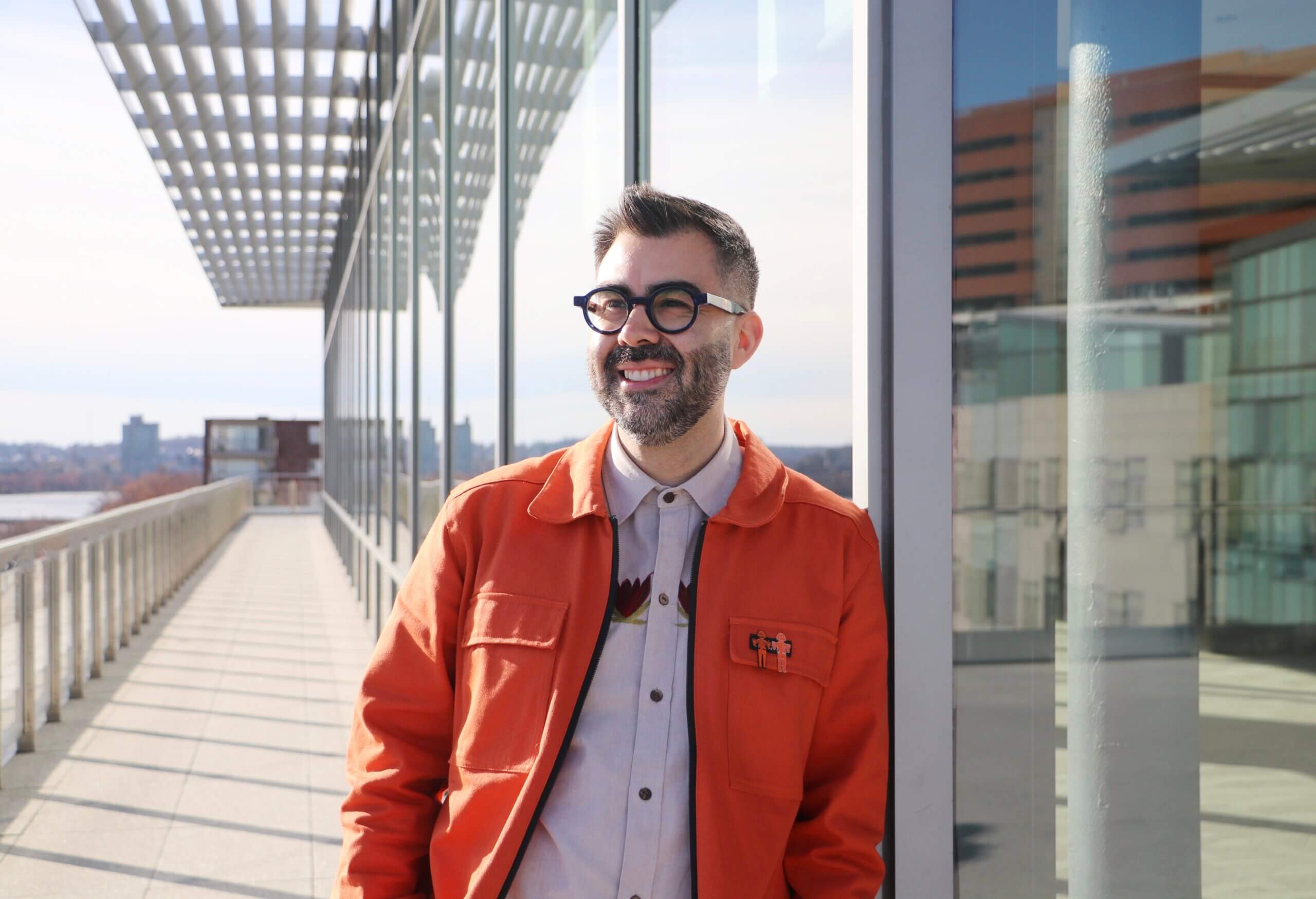MIT anthropologist Héctor Beltrán awarded 2025 Levitan Prize in the Humanities
Beltrán’s research project will focus on nomadic populations in Latin America, U.S. deportees, and their linguistic and technological adaptability.

Héctor Beltrán ‘07, the Class of 1957 Career Development Associate Professor in Anthropology, has been awarded the 2025 James A. and Ruth Levitan Prize in the Humanities. The prize, which carries a $30,000 research award, is awarded annually to support innovative and creative scholarship in the School of Humanities, Arts, and Social Sciences.
Beltrán describes his project as “a discursive and ethnographic analysis of ‘digital nomads’ in Puerto Rico and Mexico.” Its focus is those nomads who’ve wearied of the challenges specific to the lifestyle including shifting political allegiances, practical impediments to consistent internet connectivity, increased scrutiny as members of underrepresented groups, and a desire for increased stability. He pays special attention to communities who become nomadic due to circumstances beyond their control.
“I like to look at popular phenomena and follow how they make their way into everyday imaginaries and culture,” Beltrán continues. “This project will closely examine remote work; the social tiers into which remote workers are placed and why; related impacts; and, workers’ ability to take control of the narratives that can result.”
Agustín Rayo, Kenan Sahin Dean of the School of Humanities, Arts, and Social Sciences, said a review committee of senior faculty was particularly impressed by the hands-on and community-driven aspects of Beltrán’s research, as well as his focus on Latin America’s nomadic populations, deportees, and their linguistic and technological adaptability.
“The project demonstrates a profound understanding of how communities maintain their cultural and linguistic skills despite facing involuntary displacement,” Rayo wrote in his award announcement to Beltrán, which was drawn from the committee’s report. “The committee was inspired by your work’s potential to enhance understanding, leverage technology to spark impactful dialogue, and engage diverse communities in meaningful ways.”
Beltrán completed his PhD in Anthropology and MA in Folklore at UC Berkeley and holds an undergraduate degree in Computer Science and Engineering from MIT. He was previously a UC President’s Postdoctoral Fellow at UC Irvine.
Stories, the people who tell them, and their impacts
Beltran’s first book, Code Work: Hacking Across the US/México Techno-Borderlands, examines how Mexican and Latinx coders navigate a transnational economy of tech work and, in the process, develop a strong sense of their personal and political selves. At MIT, he teaches classes on the cultural dimensions of computing; practices of hacking from the Global South; and Latinx and Latin American identities, politics, and social movements.
With this new project, Beltrán seeks to explore how technological advances might impact and interact with existing social dynamics like race and gender. He’s also curious about who usually gets to tell these stories and how they’re received as they’re told. By providing an ethnographically-informed analysis of how systems like local employment and housing laws and technical infrastructure are established alongside socially-determined differences within associated political contexts, Beltrán aims to paint a more complete picture of how nomads navigate and engage with the spaces in which their work occurs and is assigned value.
“I like to follow stories on the ground as well as overarching narratives to uncover counter narratives,” he notes. “It’s one of my important roles as an anthropologist.”
Beltrán’s new project will also examine how speculative technologies that use artificial intelligence can potentially act as agents of change, partnering to create equitable futures for Puerto Ricans, Mexicans, and others. “Let’s use our imagination to redesign these complex relationships,” he says.
There are differences in how nomads’ behaviors and work are assigned value, Beltrán asserts, and this project may offer some clarity as to how these assignments occur and, in instances where they paint assignees in a poor light, how they might reclaim and rewrite the stories being told. The difference between perceptions of so-called “Silicon Valley” nomads, those whose work focuses on tech, and nomads from the global south whose work fuels and enables computational supply chains, for example, is of particular interest. Beltrán takes issue with these perceptions and the stories created alongside them.
“We need to do a better job of thinking in new and creative ways about others’ experiences,” he says. “I hope to learn more about how the subjects of these portrayals are taking control of these narratives and whether or not their tools and interventions might be used in other places.”
Ultimately, Beltrán’s work could help people reconsider the value of creating spaces for more people to tell stories about the relationship between technology and culture. “Listening to and working with those who’re traditionally excluded from spaces marked as innovative, might actually offer new and valuable takes on existing ideas while potentially improving global practices and processes,” he says.
Related
-
 January 8, 2025 | Benjamin DanielThirty-six outstanding MIT students selected as Burchard Scholars
January 8, 2025 | Benjamin DanielThirty-six outstanding MIT students selected as Burchard Scholars -
 May 2, 2025 | Benjamin DanielSix MIT SHASS educators receive 2025 Levitan Teaching Awards
May 2, 2025 | Benjamin DanielSix MIT SHASS educators receive 2025 Levitan Teaching Awards -
 May 16, 2025 | Benjamin DanielSHASS celebrates its 2025 Infinite Mile Award winners
May 16, 2025 | Benjamin DanielSHASS celebrates its 2025 Infinite Mile Award winners
Share a Story
Do you have a story to share about an event, a publication, or someone in the community who deserves a spotlight? Reach out to the SHASS Communications Team with your idea.
Email SHASS Communications